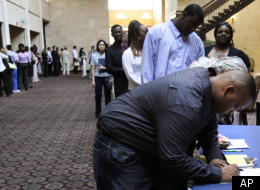Conference of Presidents of Major American Jewish Organizations
by the Jerusalem Center for Public Affairs View this page at www.dailyalert.org
Subscribe
| Via Smartphone |
August 4, 2011
In-Depth Issues:
Report: Turkey Foils Iranian Arms Shipment to Syria (AFP)
Turkish authorities seized an Iranian arms shipment meant for Syria, the German Suddeutsche Zeitung newspaper reported Thursday, quoting diplomatic sources who said the weapons were meant for Hizbullah.
Turkish security forces stopped a convoy of trucks carrying a large quantity of weapons and ammunition in Kilis, adjacent to the Syrian border.
Iran Revolutionary Guards Commander Becomes New President of OPEC - Saeed Kamali Dehghan (Guardian-UK)
Rostam Ghasemi, a senior Iranian Revolutionary Guards commander targeted by international sanctions, has taken over the presidency of OPEC after he became Iran's oil minister on Wednesday.
OPEC has a crucial role in determining oil prices.
Courage in the Face of Terror - Lee Smith (Weekly Standard)
The Syrian opposition goes into the street day after day even as it knows perfectly well what Syrian security forces are doing throughout the country.
It is one thing to fear losing your life, and it is something else to see a YouTube video of someone's head blown off and then go out into the street against the same forces.
The Syrian uprising, going on five months now, is one Tiananmen Square after another. Like Tiananmen, this is an astonishing human event; it is courage in the face of terror.
The Kurdish Connection to a Palestinian State - Guy Bechor (Ynet News)
On July 15, the Kurdish leadership in Turkey declared the establishment of a democratic Kurdish autonomy in southeastern Turkey, with its capital in Diyarbakir.
Some 850 Kurdish politicians and leaders convened in Diyarbakir to declare the democratic autonomy's formation, including 30 Kurds who are Turkish parliamentarians.
If the two million Palestinians in Judea and Samaria deserve a state, why shouldn't there be a state for the 18 million Kurds, who were discriminated against and exploited in the past 100 years?
We can now understand the dilemma faced by Iraq, Iran, Syria and Turkey, which all have Kurdish minorities, over the notion of a unilaterally declared Palestinian state.
Jerusalem Mayor Fires Ramadan Cannon - Melanie Lidman (Jerusalem Post)
Jerusalem Mayor Nir Barkat fired the traditional Ramadan cannon on Wednesday in the Sheikh Jarrah neighborhood along with Hajj Raj'ai Yehia Sanadouka to mark the end of the fast day for Ramadan.
Daily Alert Blog
Search
Key Links
Media Contacts
Back Issues
Fair Use/Privacy
News Resources - North America, Europe, and Asia:
- UN Condemns Syria
After months of deadlock, the UN Security Council finally responded to the escalating violence in Syria on Wednesday, condemning President Bashar Assad's forces for attacking civilians and committing human rights violations. The presidential statement adopted by the Security Council calls on Syrian authorities to immediately end all violence and launch an inclusive political process.
European and U.S. council members had been pressing for a legally binding resolution that would strongly condemn Syria. But Russia, China, India, Brazil and South Africa were opposed, pointing to a council resolution allowing the use of military force to protect the civilian population in Libya which, they argue, has been misused by NATO to justify five months of airstrikes against the Gaddafi regime. (AP-Washington Post) - Syria Invades Hama - Nada Bakri
The Syrian military sent tanks, armored vehicles and snipers on Wednesday into the center of the rebellious city of Hama. "The regime wants to finish with Hama as soon as possible," said Hilal Khashan, a political science professor at the American University in Beirut. (New York Times)
See also Syrian Troops, Tanks Push into Hama - Liz Sly
Terrified residents cowered indoors as shells crashed into residential areas and snipers deployed on rooftops to shoot at anything that moved. Hospitals were said to be overflowing with injured people, and there were reports of bodies lying uncollected in the streets. (Washington Post)
- New U.S. Ambassador to Israel: Palestinians Know UN Vote Won't Change Reality
Dan Shapiro, the new U.S. Ambassador to Israel, said Wednesday that the Palestinians know approaching the UN will not change reality, according to a report by Israel Radio. Shapiro said the Israeli-Palestinian conflict can only be solved via negotiations. (Ha'aretz) - Long-Range Rockets Fired from Gaza Land Near Kiryat Gat, Ashkelon - Yaakov Lappin
Palestinians in Gaza fired at least two Grad rockets deep into Israel Wednesday night. One landed in Lachish, near Kiryat Gat, while another fell near Ashkelon, damaging a road. The attacks represent an escalation in the firing of longer-range rockets. The last time such rockets were fired at Israel was in March. Local residents who heard air raid sirens rushed into safe areas and shelters to take cover. Five people were lightly injured while running for shelter in Ashkelon. The Israel Air Force bombed a number of targets in Gaza in response. (Jerusalem Post) - The PA's Economic Revival - Ron Ben-Yishai
12 new hotels have been built in Bethlehem in the past two years, and more are in the works. However, the real economic boom in the Palestinian Authority in recent years is taking place in northern Samaria, fueled by Arab Israelis who head there en masse to buy food, furniture and household items for up to half price compared to Israel. A large portion of the goods makes its way to Arab shops and malls in northern Israel (after paying duty at the Gilboa Crossing) and is sold for discounted prices. However, the PA is only able to fund about one-third of its annual budget through taxes. The rest comes from donor nations. (Ynet News)
- The New Hama Rules - Thomas L. Friedman
Hama Rules were the prevailing leadership rules in the Arab world. They said: Rule by fear. It worked for a long time in Syria, Iraq, Tunisia, etc., until it didn't. Today, Syria's president, Bashar al-Assad, Hafez's son, is now repeating his father's mass murdering tactics to quash the new Syrian uprising, again centered in Hama. But, this time, the Syrian people are answering with their own Hama Rules, which are quite remarkable. They say: "We are not afraid anymore."
Once these regimes are shucked off, can the different Arab communities come together as citizens and write social contracts for how to live together without iron-fisted dictators? I think the former foreign minister of Jordan, Marwan Muasher, has the right attitude. "One cannot expect this to be a linear process or to be done overnight," he said to me.
"There were no real political parties, no civil society institutions ready to take over in any of these countries. I do not like to call this the 'Arab Spring.' I prefer to call it the 'Arab Awakening,' and it is going to play out over the next 10 to 15 years before it settles down. We are going to see all four seasons multiple times. These people are experiencing democracy for the first time. They are going to make mistakes on the political and economic fronts. But I remain optimistic in the long run, because people have stopped feeling powerless." (New York Times) - Why I Fled Syria's Army - Babak Dehghanpisheh
Until recently, Abu Hamid, 42, served as a first lieutenant in the Syrian Army, based in Homs. Disgusted by the army crackdown, Abu Hamid, a 23-year veteran, ditched his uniform and escaped from Syria to Lebanon with his family one month ago.
The regime's shock troops are the shabiha, armed plainclothes militiamen. "We know the shabiha. They come from our own neighborhoods," says Abu Hamid. In April, Abu Hamid's neighbor, a 25-year-old woman, was raped by a group of shabiha who accused her of working with the opposition.
Abu Hamid was among only a handful of Sunni officers in his unit - the rest of the officers were predominantly Alawite - and he was already being scrutinized for any sympathetic leanings toward the protesters. "There was a lot of discrimination from the Alawites toward the Sunnis," he adds. (Daily Beast) - Who Will Help the Syrians? - Editorial
On Wednesday, the UN Security Council finally issued a statement condemning "widespread violations of human rights and the use of force against civilians by the Syrian authorities" - but with no threat of sanctions.
The Council needs to impose tough sanctions, including travel bans and asset freezes on Mr. Assad and all of his top aides. It should refer the Syrian leader and his thugs to the International Criminal Court for a war crimes investigation and direct states to halt investment in Syria's government-run energy sector. (New York Times) - Congress Should Consider Syrian Energy Sanctions - Mark Dubowitz
Members of Congress are considering a bipartisan energy sanctions bill targeting investment in Syria's energy sector, as well as petroleum exports and imports, and the transfer of technology. These bills are modeled on Iran sanctions laws that are successfully squeezing Iran's energy sector.
While Robert Ford argued on Tuesday at his confirmation hearing as ambassador to Syria that "additional American measures probably aren't going to have that big of an impact," he is wrong in arguing that U.S sanctions won't work. On Iran in particular, Washington has convinced companies that it is better to do business with the U.S. than spend their scarce capital operating in rogue regimes. It's time to persuade Assad's energy partners that their support for the regime is bad for business - not to mention their reputations. The writer is executive director of the Foundation for Defense of Democracies. (The Hill)
- In a few weeks, an overwhelming majority in the UN General Assembly will likely vote for collective recognition of a Palestinian state. But the purely imaginary state that the assembly will endorse has neither a functioning government nor meets the requirements of international law.
- The PLO does not seek statehood for the West Bank. Its minimum demand is a state that includes Gaza and the eastern part of Jerusalem, demanding title to lands and authority over populations it does not control.
- Mahmoud Abbas is presenting himself as the president of the Palestine that is pressing the claim in the UN, but he is not considered to be the president anymore by Hamas, the largest political party in the putative state. Abbas' term expired in January 2009.
- The
Palestine that the General Assembly will recognize also will have two
rival prime ministers pursuing incompatible policies. Hamas denies that
Abbas has the authority to appoint Salam Fayyad as prime minister. This
putative state also has a legislature that never meets. Elected on Jan.
25, 2006, for a term of four years, the PLC has enacted no laws, and
conducted no meetings since 2007.
The writer served for 23 years as a senior official of AIPAC and is now the director of the Washington Project of the Middle East Forum.
FR.CHABAD.ORG Magazine
|
| ||||||||
America Appears Increasingly Vulnerable To Second Recession
August 4, 2011
NEW YORK -- Three years after the worst economic downturn in
generations, the American economy increasingly appears vulnerable to
another recession.










